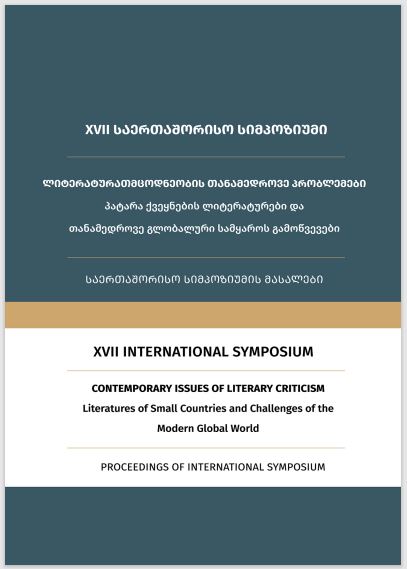The Machine Rebellion in Russian and European Literature of the Turn of the Twentieth Century
Published 2024-12-20
Keywords
- Machine Rebellion,
- H.G. Wells,
- Bryusov,
- Voloshin,
- Khlebnikov
- Mayakovsky ...More
Abstract
At the turn of the twentieth century, a long-standing mystical theme, the rebellion of the creature against the Creator, appears as the triumph of machine civilization. I appears in science fiction (Henri Ner, H.G. Wells, Auguste de Villiers de l’Isle-Adam, Karel Čapek), in the works of the Futurists (Velemir Khlebnikov, Vladimir Mayakovsky, Alexei Kruchenykh), the Symbolists (Valery Bryusov, Maximilian Voloshin, Grigol Robakidze), the Expressionists (Antonin Seuhl), etc. Its origins can be found in the Romantics (E.T.A. Hoffmann, Mary Shelley). Science fiction (H.G. Wells, Alexander Bogdanov, Alexei Tolstoy) develops the ancient theme of mystical journeys to other planets, transmigration of the spirit to another world (Cyrano de Bergerac, Swedenborg, Camille Flammarion, Dostoevsky). In the periods of wars and revolutions, devastation and famine (the Russo-Japanese War of 1904-1905, the Russian Revolution of 1905-1907, the World War of 1914-1918, the revolutions in Russia and Germany in 1917-1918, the Russian Civil War of 1918-1920 and the famine of 1921), the fear of deadly machines, of technical progress becomes
from mystical to real and universal. Numerous short stories, novels, poems, and plays describe how mechanisms (robots) go out of obedience, destroy humans, and create a new world.

